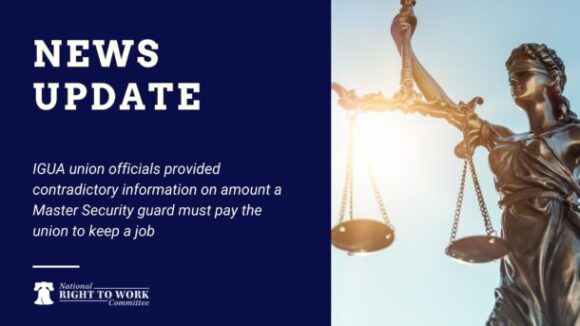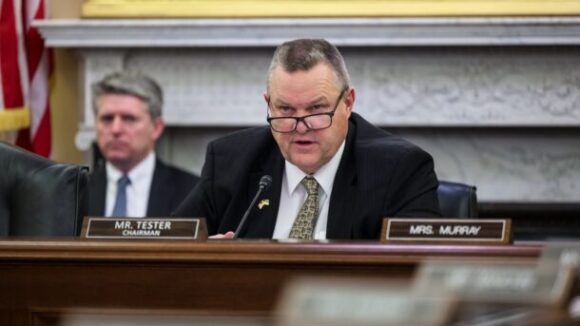GOP’s ‘Dangerous Liaison’ With Union Bigwigs
Josh Hawley distances himself from pro-Right to Work pledges, aligning with union bosses like the Teamsters, despite their history of corruption.
In a commentary published this Monday (see the link below), Washington Post writer Charles Lane observes that an “appalling” scandal at the Baltimore City Detention Center offers Marylanders a lesson that “experience elsewhere has already taught many times”:
Good governance is not necessarily consistent with the demands of government unions, in this case the unions [monopolistically] representing Maryland’s correctional officers.
As Lane explains, a federal indictment unsealed on April 23 charges that a gang “known as the Black Guerrilla Family [or BGF] took over the center, trafficking in drugs, cellphones and sexual favors with the connivance of at least 13 [unionized] guards, several of whom are bearing a gang boss’s children . . . .”
And according to an FBI special agent’s affidavit, a 2010 law rubber-stamped by Big Labor-“friendly” Maryland legislators in both major political parties and signed by Democratic Gov. Martin O’Malley at the behest of top bosses of the American Federation of State, County and Municipal Employees (AFSCME/AFL-CIO) union and its Free State subsidiary has (in Lane’s words) “all but disarmed managers at the Baltimore jail.”
Discipline under the AFSCME boss-backed “Correctional Officers Bill of Rights” (COBR) “has proven to be very difficult,” wrote the agent, and “the internal review process set up by COBR is ineffective as a deterrent to [correctional officers’] smuggling contraband or getting sexually involved with BGF gang members.”
In Lane’s view, it’s difficult to see any reason why legislators and a governor seeking to act “in terms of the public interest” would sign off on a “state surrender of control over its workforce,” but it’s “easy to explain politically.”
Government union bosses “accumulate cash through mandatory dues checkoffs — from tax-funded payrolls” and wield a large share of it to acquire “special influence over state government.”
The result is prison managers who are evidently unable to check corruption among AFSCME union-controlled correctional officers before it gets completely out of hand.
Maryland’s union-label governor and his legislative cohorts, as well as AFSCME bosses, are now trying to deny the obvious role COBR played in spawning the Baltimore jail scandal as they seek to contain the political damage. Here’s hoping freedom-loving Marylanders don’t let them get away with it, and intensify their efforts to promote desperately needed reforms rolling back government union chiefs’ monopoly privileges.

Josh Hawley distances himself from pro-Right to Work pledges, aligning with union bosses like the Teamsters, despite their history of corruption.

IGUA union officials provided contradictory information on amount a Master Security guard must pay the union to keep a job

Thanks to the Committee's election-year program, union-label candidates like Sen. Jon Tester (Mont.) are being given a choice: pledge to change course and support Right to Work going forward, or face the potential political consequences.